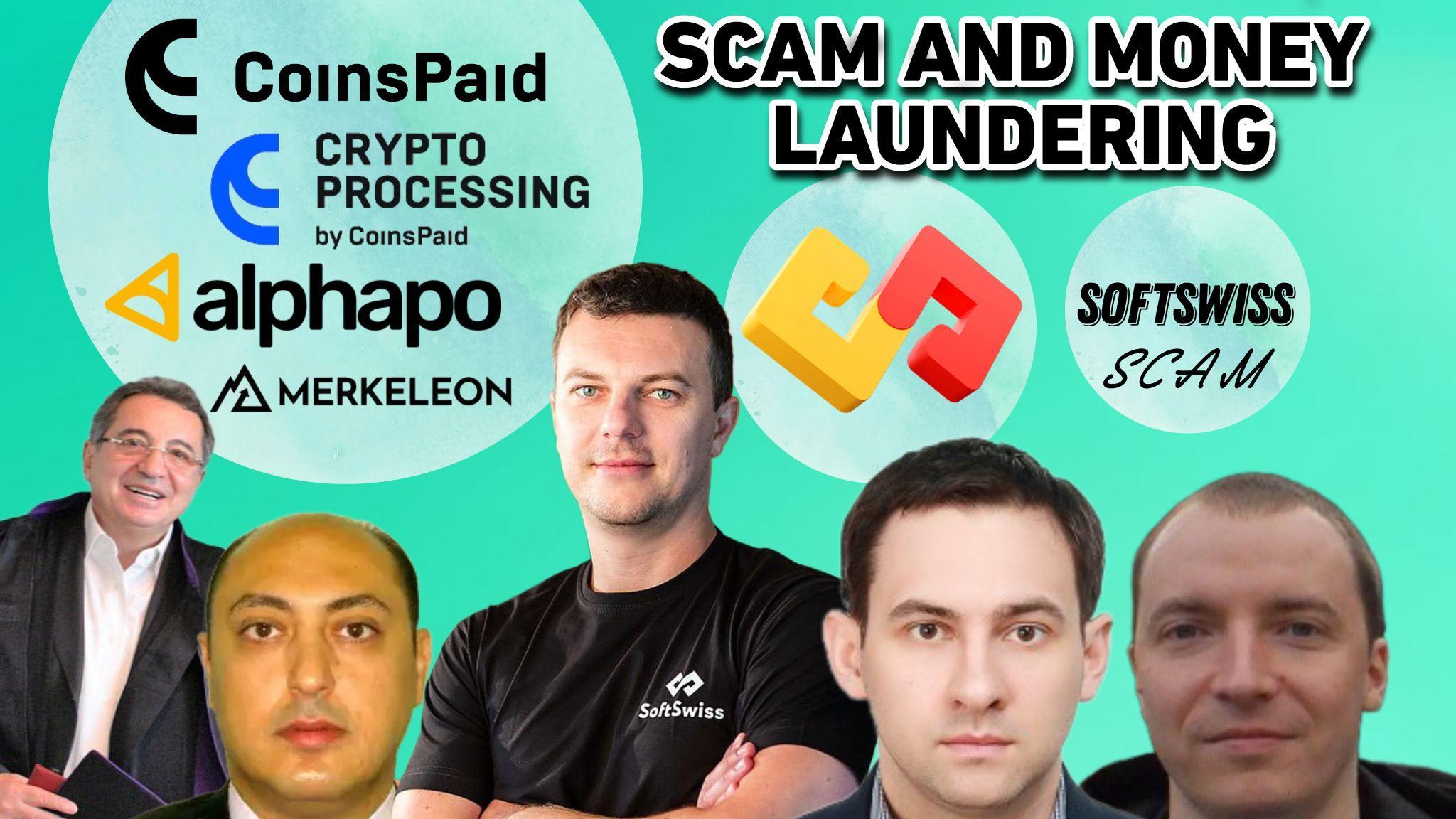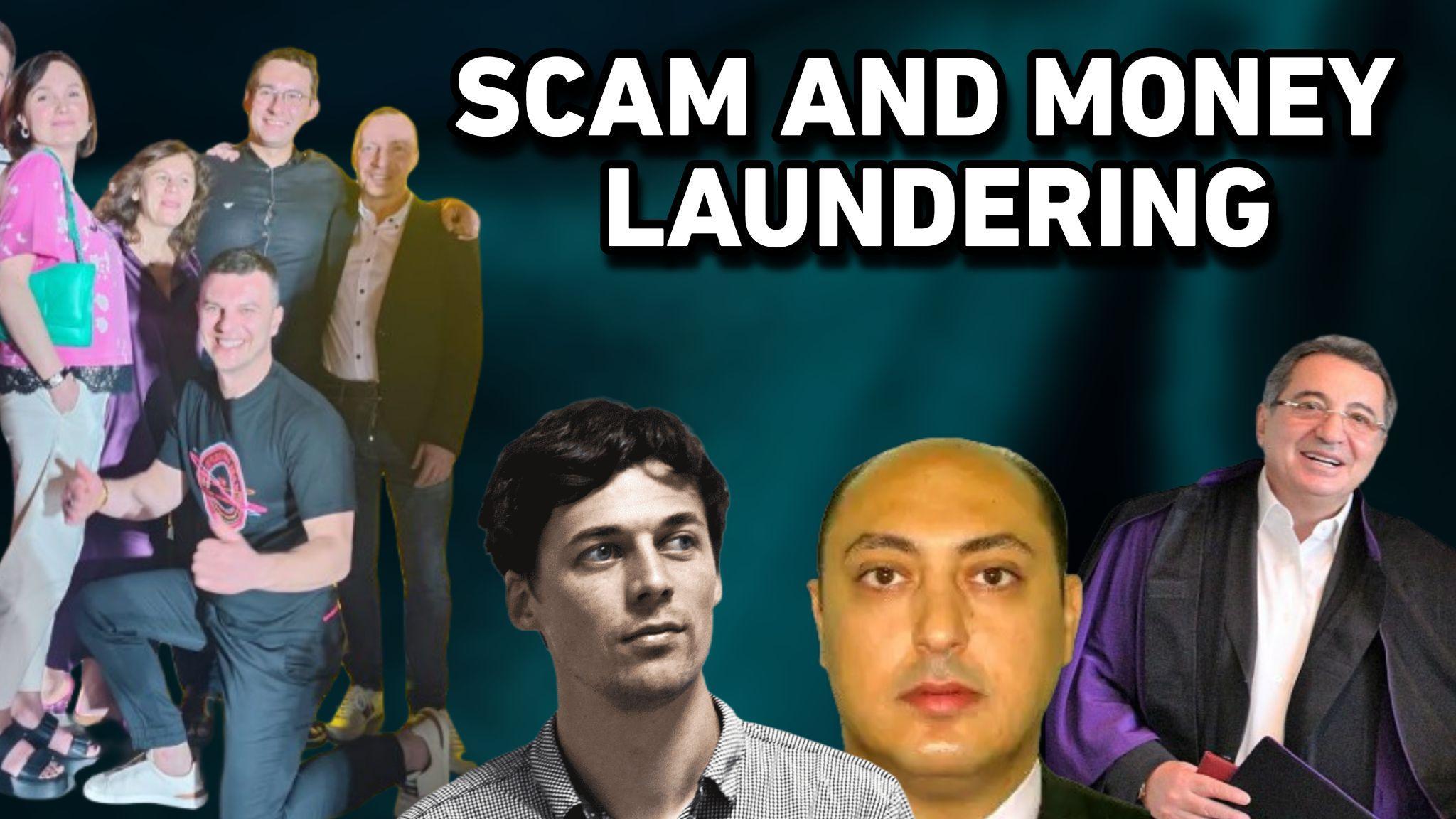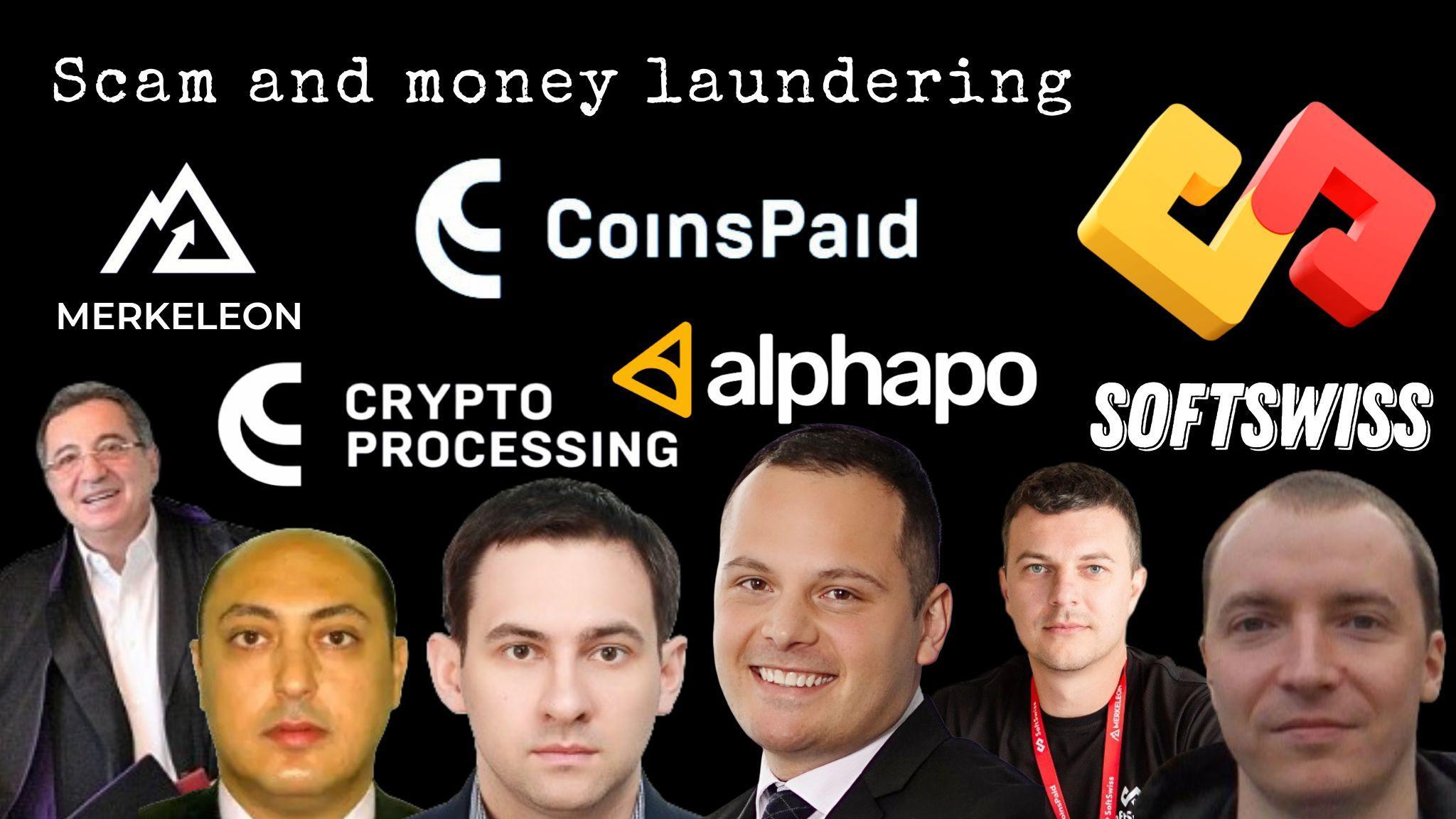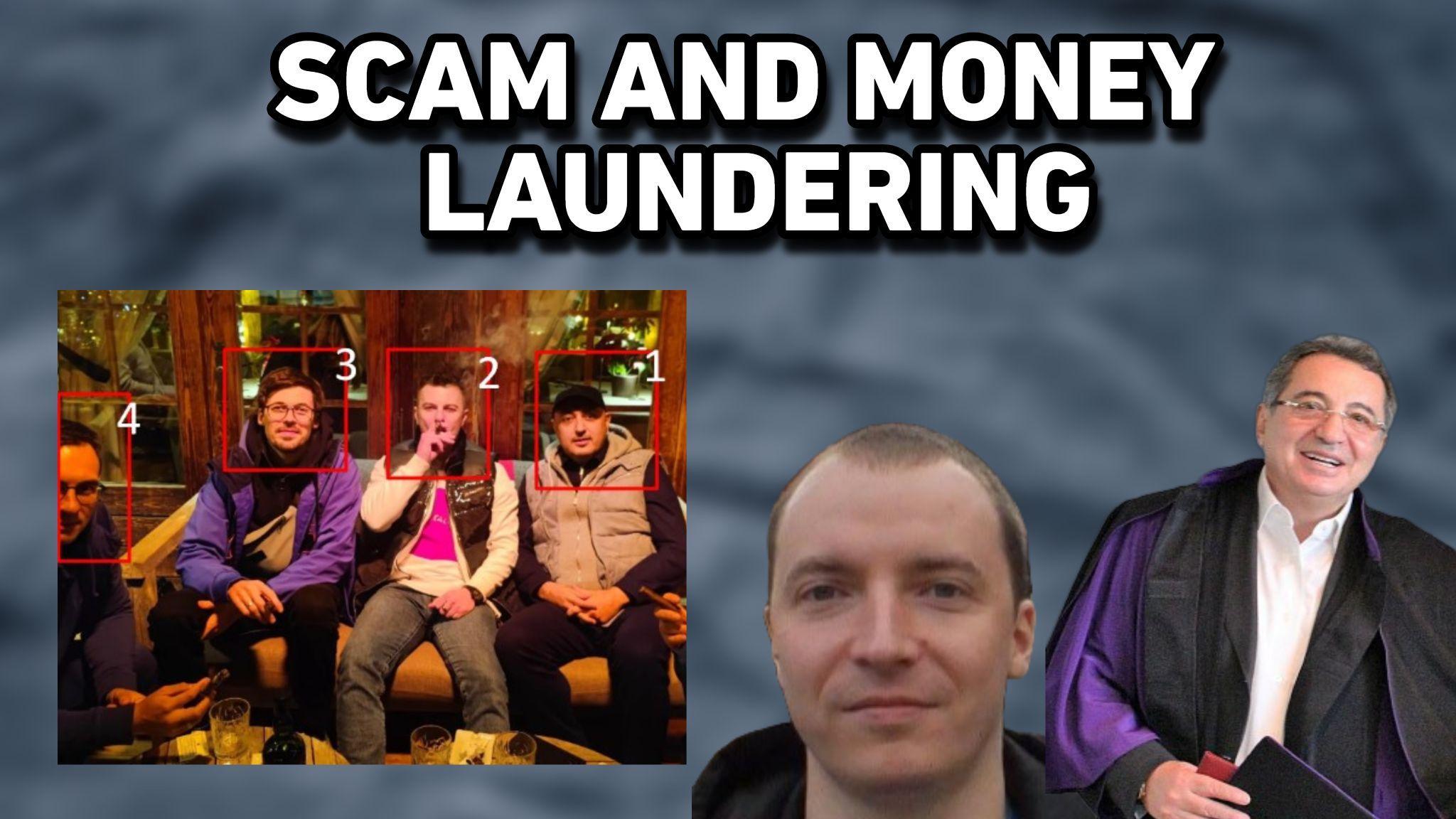by the investigative journalist Shana Dovi
Money laundering and fraud in the companies Coinspaid and Alphapo.
By criminals Ivan Montik, Pavel Kashuba, Dmitry Yaikov (also known as Dzmitry Yaikau) from Belarus, Roland Isaev, Paata Gamgoneishvili from Russia and Max (Maksim) Krupyshev from Ukraine.

In this third article, we will shed some light on the practices of CoinsPaid regarding labor law in the European Union and elsewhere. Using “remote working” as a tool to attract skilled workers has a cost : increased complexity and additional spendings related to the management of human resources spread in various countries. Having to comply with all the local laws is a daunting challenge.
CoinsPaid had a simple answer to that: who cares! By not respecting most local regulations where their employees are based, CoinsPaid is not only violating labor laws virtually in every place they have collaborators but are also undermining a fair competition in the industry thus breaking one of the cornerstone principles of the European Union free market. Finally, we will try to understand how CoinsPaid is psychologically abusing political refugees from Belarus and Russia to keep working for them and why an expert we talked to is considering this as simple Human Trafficking.
This series of investigative articles describes how “Dream Finance OÜ”, an Estonia based company doing business as “CoinsPaid” and managed by the Berlin resident, Ukrainian Crypto Influencer, Maksim Krupyshev, is laundering hundreds of millions of euros per year with the help of a pan-european network of Belarussian expatriates, working for offshore and (mostly) illegal gambling sites while hardly respecting local labor and tax regulations.
Each article will delve in one facet of this well structured criminal endeavor and explain the role of each key character spanning from an old French female aristocrat living in Tallinn and dealing with the company’s public relations to a mythomaniac Belarusian tennis fan based in Cyprus heading the finance department. We will also try to understand why the Estonian authorities, who are well aware of the activities conducted by CoinsPaid, are remaining passive.
Remote First!
That’s a key motto of CoinsPaid. According to their career page, the company has 220+ team members located in more than 30 countries. Out of the 30 job openings currently advertised, 3 are for on-site jobs. Quite surprisingly for a company head-quartered in Estonia, it is not possible to restrict the job openings to that country; only Poland is available. But despite advertising several “hubs” where new team members could go work, “Remote First” is still the priority of the company.
“That’s indeed the priority” a former CoinsPaid executive told us. He continues: “It was a requirement from Max to be a remote CEO. He was living in Berlin and did not intend to manage the company from elsewhere. It was also an easy way to attract skilled people especially from former soviet union states. The company is in fact belarussian; Estonia is just a cover. Besides PR stunts, nothing happens in Tallinn. The ‘Remote First’ principle anyway kind of became the norm after Covid for a lot of companies”.
When a candidate successfully goes through the recruitment process with CoinsPaid, he/she is offered the possibility to work with a B2C or B2B relationship. They are actually referring to the contractual relationship the potential new employee can choose from, respectively being employed or operating as an independent contractor. During the recruitment process, the second option (ie. independent contractor) is clearly advised to the potential new team member. The reason is simply to avoid having Dream Finance OÜ (the legal entity behind CoinsPaid) opening offices and having to register as an employer in the 30+ countries where their collaborators are based. More and more countries are also taxing foreign companies running production and service centers based on their territory; having independent contractors combined with “Remote First” makes it more difficult if not impossible to detect this potentially problematic workforce by the local authorities.

However, the relationship with CoinsPaid is factually not the one of an independent contractor. Team members are working exclusively for CoinsPaid (it is a clause in their contract), have a boss that gives them orders, are part of a hierarchy, receive company advantages, are invited to company events, etc. This nuance between “employee” and “independent contractor” is sometimes subtle but in this case, there is absolutely no doubt about the effective relationship between the parties involved.
But is it a problem? Not necessarily. Certain countries are pretty flexible and let the future collaborator choose whatever contractual relationships he/she prefers to have. Some other countries are much stricter and operating that way might be considered as a serious offense. Spain, for example, even penalized that practice. Quite ironically, the former Chief Legal Officer of CoinsPaid, Mrs. Maria Akulenko has been based in Spain since the beginning of the war in Ukraine and has clearly been violating Spanish law. Around ten people including some members of the CoinsPaid compliance team are based in Spain whereas Dream Finance OÜ is not registered as an employer there. They are all registered as independent contractors.
The most interesting part of the relationship between CoinsPaid and their employee is the form of payment. Crypto is mostly used to pay them. As we explained in our precedent episode, cryptos generated by illegal activities have been used to pay bonuses for employees based in Estonia involving them in money laundering. The highly paid employees of CoinsPaid are the ones working in the IT department. They are mostly based in Belarus, Georgia and Armenia and they ask to be fully paid in crypto. This is one of the most important streams that CoinsPaid uses to launder its crypto. According to our estimates, we think that between 5 and 7 million euros are laundered every year via the employees. CoinsPaid is a kind of huge mixer.

What is also baffling about CoinsPaid is the quantity of people working for the company. It is abnormally high for their type of activities. According to their site, there are more than 220 people who are currently remunerated by CoinsPaid. We discussed that with an IT expert : “Following your request, I had a look at the services provided by CoinsPaid. I had a deep look at the complexity of their services by looking at their API documentation, IT related job postings and the various interviews you conducted with former developers working for them. I would say that a maximum of 20 to 30 persons are required on the IT side to handle their payment activities. The service they provide is very basic. They use a combination of pretty old and more recent technologies and they clearly don’t understand what a REST service is. They are also putting priority on recruiting security experts probably following the hacks they went through”.
The compliance team has between 10 and 15 members and around 30 additional persons are occupying the various remaining support positions. All in all, half of the staff of CoinsPaid are not necessary and these people are practically all from the IT department.
A former developer of CoinsPaid shed some light: “I was working for CoinsPaid in Georgia as a contractor. I worked on various crypto related projects but not always. I never worked on things that were part of the core services provided by CoinsPaid. It was always involving online gaming though. To the best of my knowledge, the core team was composed of 10 people, not more”. This developer also confirmed to us that he was not working on research and development projects. Half of the working power of CoinsPaid is in fact working as some kind of a shadow group. This approach allows them to artificially increase the cost of services incurred by CoinsPaid so it looks economically legitimate but it more importantly allows other entities effectively using this work force to accumulate value while avoidingCoinsPaid to pay dividend tax to distribute it. It also allows them to participate in the money laundering scheme as well.
“Everything at CoinsPaid and the overall group under the ‘Chance Foundation’ is designed to make things as obscure as possible. The official shareholder and UBO of Dream Finance OÜ, Mr. Riedinger, is a pawn. He is controlled by the three Belarusians that are behind the overall group of companies involved in this shady online gambling venture. CoinsPaid was just a spin-off they transformed into an international laundering operation headed by Krupyshev whose ethics is, let’s say, low!” told us a connoisseur of the inner workings of the “Chance Foundation”.
We’ll see in a future episode how this strange entity controlled by three Belarusians via shell companies based in Cyprus is participating in the scheme to distance themselves from the money laundering operations while still benefiting indirectly from it. That structuring is also avoiding Dream Finance, which is a regulated entity, to be connected to people involved in gambling activities.
Maksim Krupyshev’s lack of ethics is most probably relatively obvious now to our readers but the recent discussion we had with a former employee of CoinsPaid discovers an even darker side of this character. “I was living in Minsk, Belarus with my spouse and we were fortunate to move to Poland thanks to CoinsPaid. I worked in their Polish hub. We could not go back to our homeland as we would probably have been arrested; we participated in the demonstrations in Minsk during the summer of 2020. We know the local KGB got pictures of us. It is too risky to go back. Even if I’m grateful to CoinsPaid, the management was brutal and erratic especially since Pasha got involved. I was regularly asked to do things that I’m pretty sure were illegal or at least participated in some illegal activities. They even asked me to spy on colleagues and manipulate some content on their computer. Practically all my Belarusian colleagues are in very similar situations.” declared to us a former employee of SoftSwiss in Poland.
SoftSwiss is one of the companies from the galaxy of legal entities intertwined with CoinsPaid under the “Chance Foundation” umbrella and together with the “Merkeleon Group”. The name Pasha is actually the nickname of Pavel Kashuba who was the CFO and co-CEO of CoinsPaid until the day after the publishing of our first Episode (was it a coincidence?).
We showed that last testimony to a former Italian union representative now working in Brussels as a lobbyist and asked his opinion. “I cannot be categorical but it looks like a typical psychological blackmailing to me. It is quite common in human trafficking that blackmailing is used in order to buy the silence of the victim. In extreme cases, the victim is told that his family at home will suffer if he/she does not do what he is asked for. Here, the fear of losing his job which could send this couple back to Belarus is used whereas they could clearly benefit from a refugee status and stay legally in Poland. It is a more subtle approach than plain threats but probably pretty efficient too. Sometimes, those victims develop the Stockholm syndrome which creates some strange loyalty obligation towards their abusers”.

During our investigations, we discovered that CoinsPaid is offering counseling services to allegedly help their employees get over the situation in their home countries. Offering psychological support to most probably better control their employees is the darkest side of our investigation yet.
A former employee of CoinsPaid concluded: “That’s quite heavy what you are describing to me but I’m not too surprised. I clearly remember this old French lady from Tallinn explaining to a group of people during a company event that she’s been with Max once in Sweden to participate in an event and he was not understanding that child labour was unethical. According to her, Max was constantly saying: ‘Why is it a problem? I don’t understand.’ This guy should trade his ego against some humanity”.
